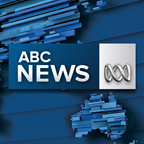
Updated
Prime Minister Malcolm Turnbull has confirmed the Government will ban gambling advertising before 8.30pm during live sporting events, and for five minutes before and after the start of play.
Key points:
- Sporting executives fear move will slash value of television rights
- Change will not apply to racing
- Free-to-air television networks' $130m broadcast licences will be replaced with $40m "spectrum charges"
ABC News revealed last month that the plan had been taken to Cabinet.
It faced a backlash from the executives of some of the nation's biggest sporting codes, who argued restricting gambling advertising would slash the value of the television rights their codes attract.
But speaking in the United States before his flight back to Australia this morning, Mr Turnbull said the plan would go ahead.
"Parents around Australia will be delighted when they know that during football matches, and cricket matches, live sporting events before 8:30pm, there will be no more gambling ads," he said.
"There are no gambling ads allowed before 8:30pm generally, but there's been an exception for a long time, of live sporting events."
Mr Turnbull said the ban would not apply to racing.
Executives from the AFL and NRL had been lobbying Communications Minister Mitch Fifield to scrap the plans.
ABC News had also been told Cricket Australia was pushing against the change.
After 8:30pm, the status quo will remain.
"The gambling companies have actually been at the forefront of calling for just these types of restrictions," Senator Fifield said.
"The Responsible Wagering Council have been urging the Government to look at this area because they recognise that there's a need for change."
The gambling policy could help secure Senate crossbench support for other media reforms dealing with ownership and reach restrictions.
Senator Nick Xenophon has long campaigned for restrictions to gambling advertising, and commands three votes in the Upper House.
The Coalition has also proposed changes to the "anti-siphoning list" which makes sure certain sports are broadcast on free-to-air networks, giving pay television a better chance of bidding for major events.
Government 'scraps licence fees' to fund lost ad revenue
The nation's free-to-air television networks had also raised concerns it would eat into their advertising revenue, and demanded their Commonwealth licence fees be cut to fund the losses.
Networks pay about $130 million per year for their broadcast licences.
Under the new model, that would be replaced by what is called a "spectrum charge" of about $40 million.
"In the last budget I cut free-to-air licence fees by 25 per cent, my predecessors have also cut licence fees," Senator Fifield said.
"So it's been something that both sides of politics have recognised that the licence fees are something that are really from a bygone era.
"What we have done is taken the opportunity to not only provide a shot in the arm for free-to-air broadcasters, but we have taken this opportunity to provide a community dividend in the form of further gambling advertising restrictions."
"Until today, Australia's free-to-air broadcasters had been paying the highest licence fees in the world," Free TV chairman Harold Mitchell said in a statement.
Australia's third largest network, Network Ten, had been hoping for a cut in its licence fees as it battles to survive in the tough television advertising market.
"The Government's package provides very welcome, immediate financial relief for all commercial free-to-air television broadcasters," Network Ten chief executive Paul Anderson said.
"It provides a boost for local content and the local production sector.
"Recent financial results and announcements from across the Australian media industry clearly demonstrate that this is a sector under extreme competitive pressure from the foreign-owned tech media giants.
"This package is not just about Ten or free-to-air television. It is about ensuring that there is a future for Australian media companies."
Topics: gambling, sport, advertising-and-marketing, business-economics-and-finance, government-and-politics, federal-government, community-and-society, australia
First posted






 Add Category
Add Category
